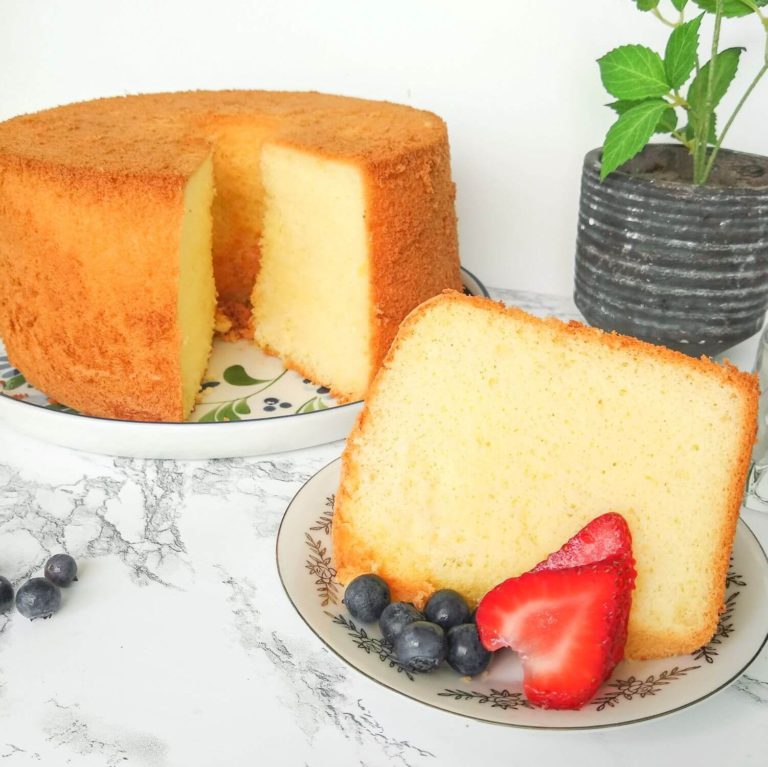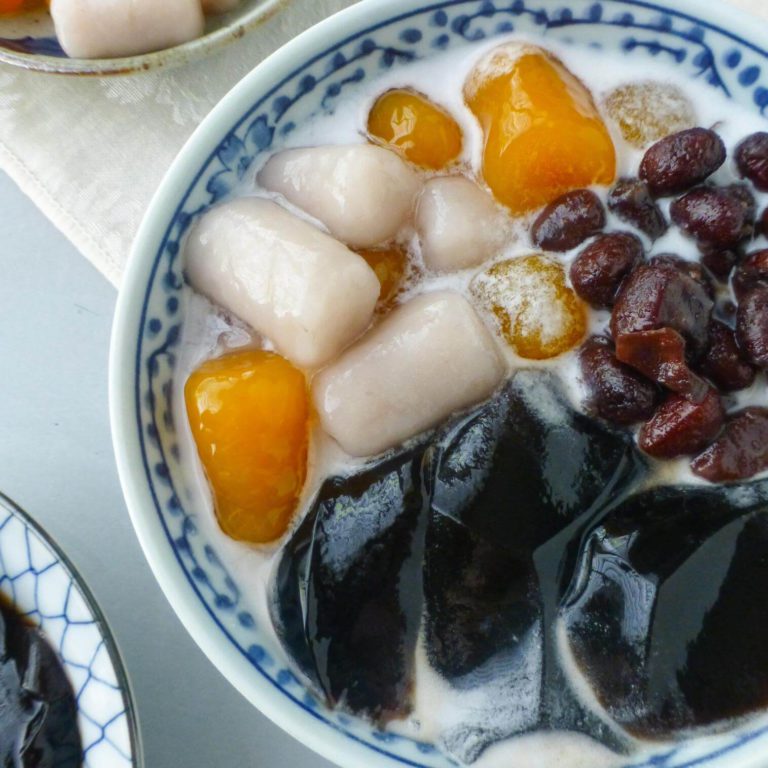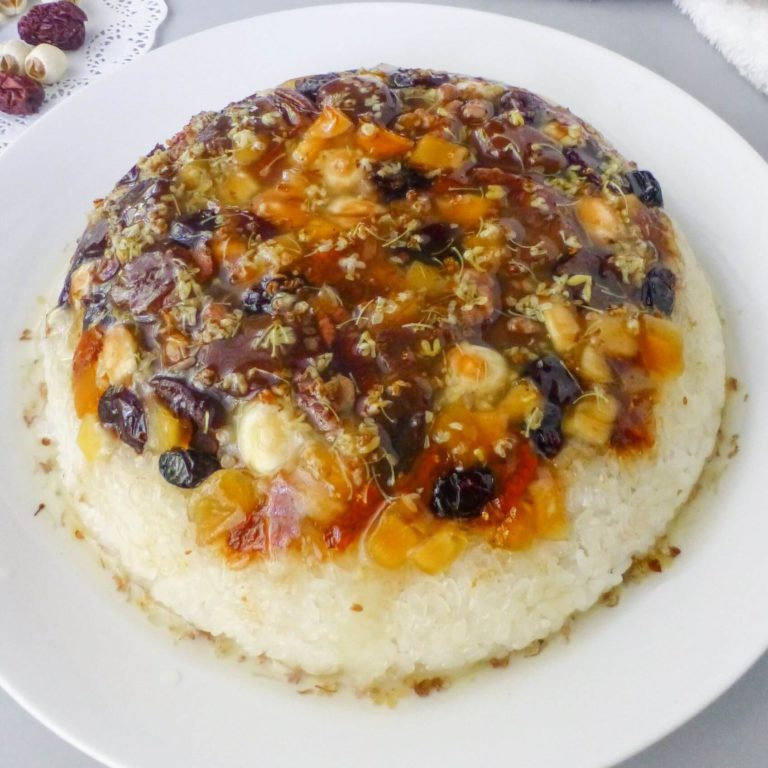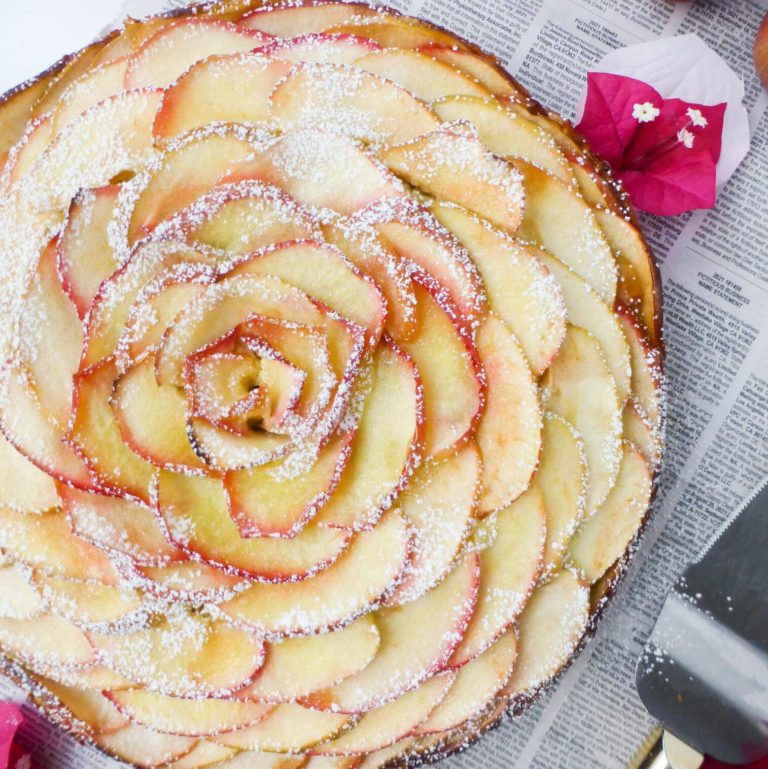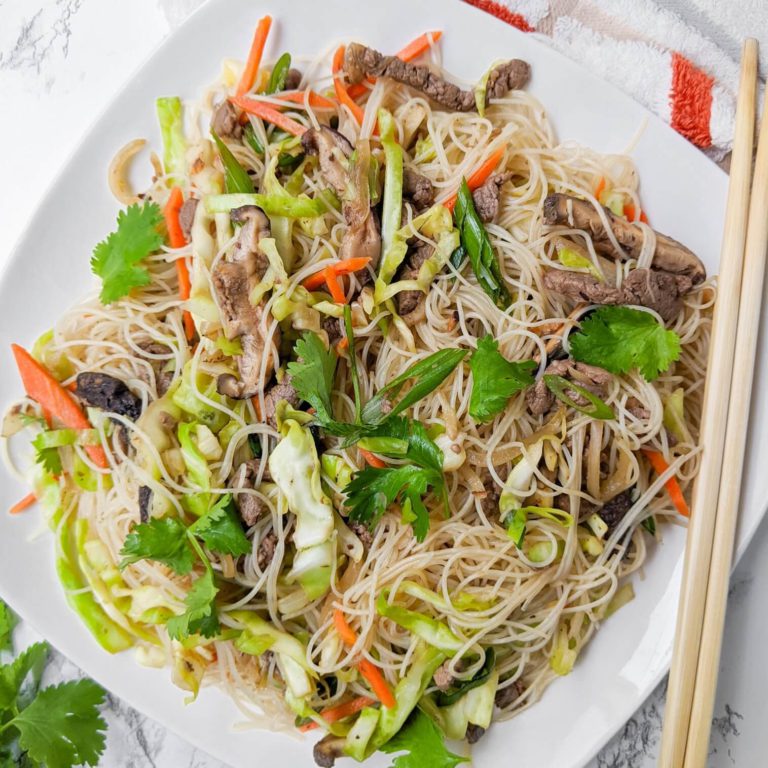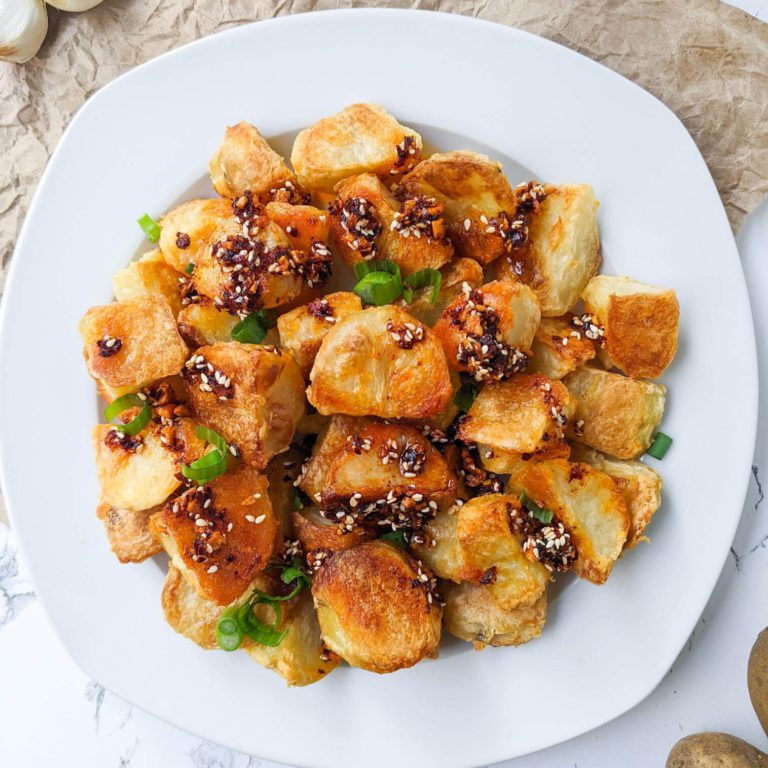Kirimochi: The Ultimate Guide
Kirimochi, a type of dried mochi, can be prepared using various methods. Here is the ultimate guide to simple, but delicious ways to use this ingredient.
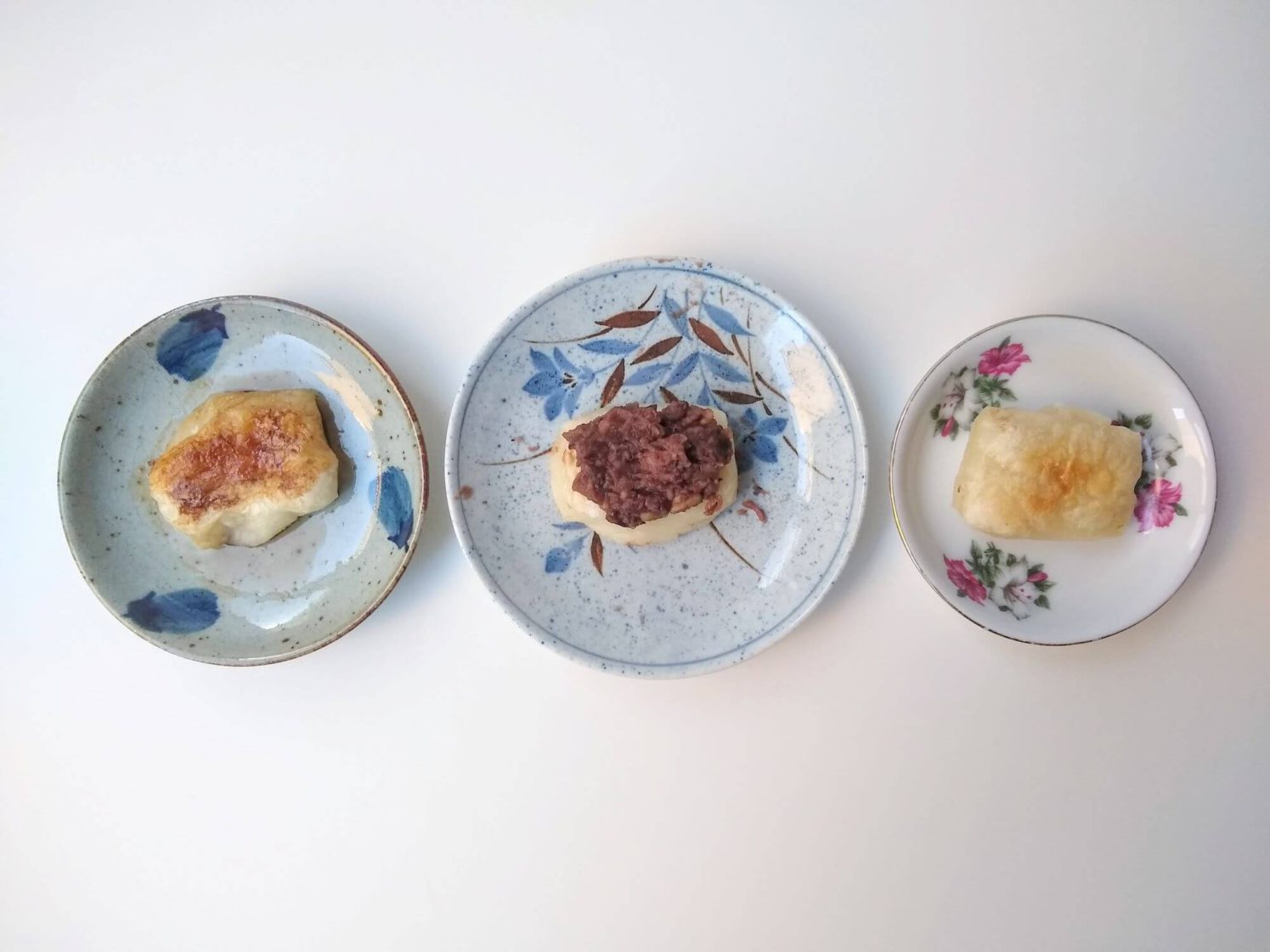
There are countless ways to prepare kirimochi. Down below, I have listed five different cooking methods and seven possible flavors/toppings.
Cooking Methods: toasting, microwaving, grilling (also known as yaki mochi), boiling, or as a “moffle” (a mochi waffle)
Flavor Combos: soy sauce and sugar (for a sweet soy mochi), kinako (roasted soy bean powder), red bean, daikon and soy sauce, honey butter, natto (fermented soy beans), chocolate, and in soup
Don’t have kirimochi? Click here for an easy way to make it at home!
The article linked above also has some great background information on this mochi if you would like to learn more about this Japanese dish.
How to Prepare Kirimochi
Kirimochi is a hard mochi, so it must be heated up/ cooked before eating. After cooking, the mochi becomes very stretchy, chewy, and soft. If you decide to toast or grill the mochi, a good indicator that it has finished cooking is when the mochi puffs up, even more than the picture below! If you decide to boil or microwave the mochi, make sure it becomes nice and soft. Homemade kirimochi tends to puff up less uniformly than the commercially produced kind. However, they will taste just as great.
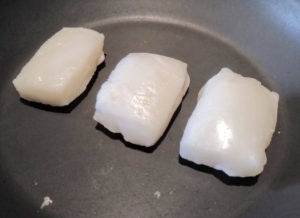
Look at the picture below to see how stretchy and chewy the mochi can get:
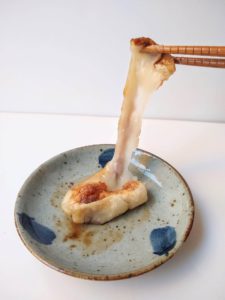
Here are some example preparations:
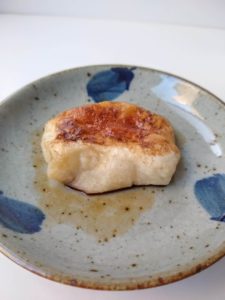
The most popular way to prepare kirimochi is toasting it with soy sauce, sugar, and nori (dried seaweed, not pictured). This method is a wonderful savory variation of mochi.
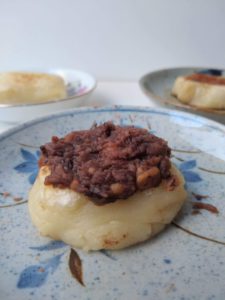
Another popular serving method is topping the mochi with red bean paste, or “Anko” in Japanese. This topping is great as a sweet variation.
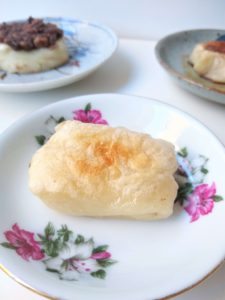
Above is a plain toasted kirimochi waiting for some toppings. Feel free to experiment with any of the cooking methods and additions listed down below!
How to Prepare Kirimochi
Ingredients
Isobeyaki
- soy sauce
- sugar or honey
- nori sheet
Kinako (Roasted Soybean)
- kinako powder
- sugar
Red Bean (Anko)
- red bean paste
Daikon and Soy Sauce
- daikon grated
- soy sauce
Honey Butter
- butter
- honey
Natto (Slimy Fermented Soybeans)
- natto
Chocolate
- chocolate
Instructions
Ways to Prepare Mochi
- Toasted Mochi: Put the mochi in a toaster oven or non-stick pan for 5-10 minutes until puffed and nicely toasted.
- Microwaved Mochi: Slightly dampen the surface of the kirimochi and microwave for a minute or two, until softened.
- Grilled Mochi: Grill the mochi for about 10 minutes or until puffy and nicely toasted.
- Boiled Mochi: Place the mochi in a pot filled with cold water. Bring the pot to a light simmer and simmer for 3-4 minutes, or until the mochi is nicely softened. (Good for soups like ozoni or udon)
- Moffle (Mochi Waffles): Place mochi blocks into a heated waffle iron for 6 minutes, or until crispy.
Flavor the Mochi
- Isobeyaki: Toast or grill the mochi with soy sauce and sugar (optional). Wrap with a nori sheet or add nori flakes on top.
- Kinako: Prepare mochi as desired and toss in kinako powder and sugar to taste
- Red Bean: Prepare mochi as desired and top with red bean paste
- Daikon and Soy Sauce: Prepare Mochi as Desired and top with grated daikon and a drizzle of soy sauce
- Honey Butter: Toast or grill the mochi with butter. Top with a drizzle of honey.
- Natto: Prepare mochi as desired and top with natto.
- Chocolate: Prepare mochi as desired and top with chocolate.
- Soup (ex: Ozoni, Udon): Boil, grill, or toast the mochi separately and add it to the soup at the very end.

